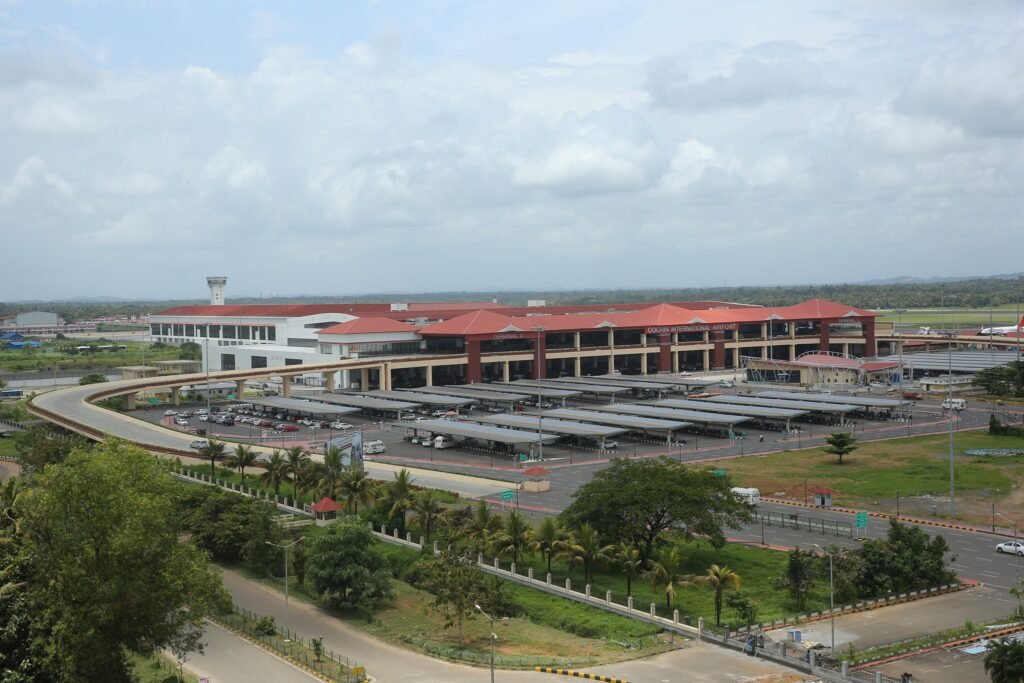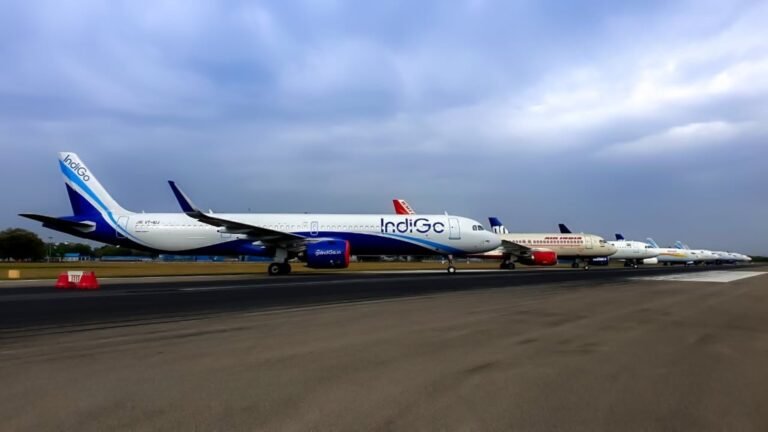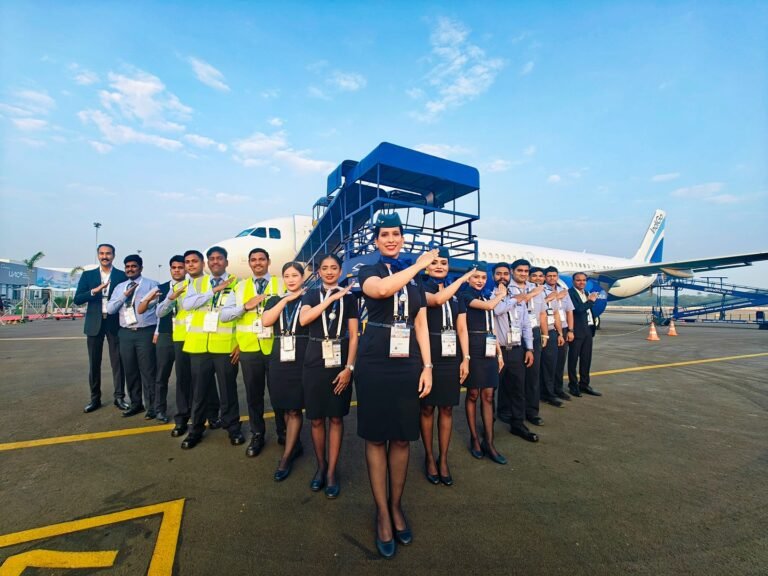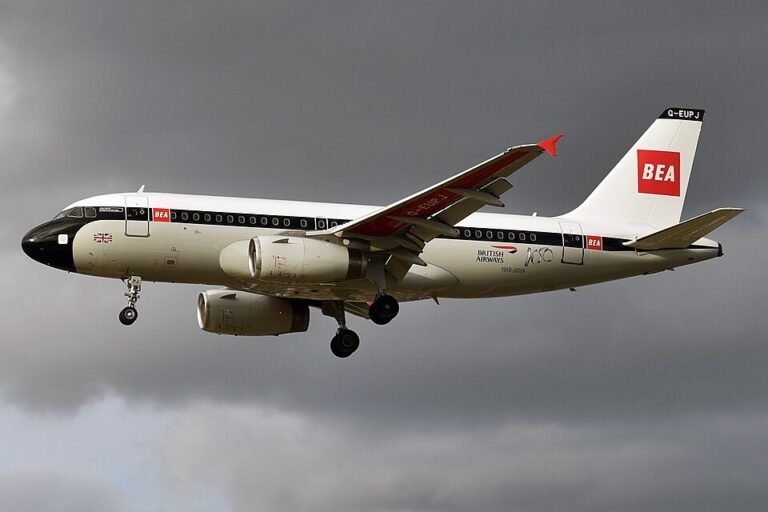Picture Credits: Cochin International Airport Limited
Kochi, INDIA: In a major push towards modernisation, Cochin International Airport Ltd (CIAL) has announced the rollout of a ₹200-crore digital upgrade plan titled ‘CIAL 2.0’, a project that promises to transform one of India’s busiest airports into a cutting-edge, tech-driven travel hub. The official inauguration is scheduled for May 19, 2025, with Kerala Chief Minister and CIAL Chairman, Pinarayi Vijayan, presiding over the event at the airport’s Trade Fair & Exhibition Centre.
This initiative marks a significant chapter in the airport’s 25-year journey and signals its transition from a conventional international airport to a smart, secure, and highly automated one. Deploying artificial intelligence and real-time surveillance will enhance passenger processing and cybersecurity.
India’s First Cyber Defence Hub in an Airport
One of the most talked-about highlights of the upgrade is the establishment of India’s first Cyber Defence Operations Centre (CDOC) within an airport. The centre, developed in association with the Centre for Development of Advanced Computing (CDAC), is designed to counter the growing threat of cyberattacks on critical airport systems.
Officials from CIAL explain that the CDOC will provide 24×7 threat monitoring, data security management, and emergency response coordination in the event of attempted breaches. Given the increasing dependency on digital platforms for flight operations, security checks, and passenger data management, the move is both timely and essential.
“This is no longer about future-proofing. It’s about current-proofing,” said a CIAL spokesperson. “Airports are becoming digital organisms, and we need to treat cybersecurity as the immune system.”
Touchless Travel and AI-Based Security
For the everyday passenger, the most visible changes will come in the form of contactless, automated services aimed at reducing waiting times and improving overall travel comfort.
CIAL 2.0 will introduce:
Contactless Full-Body Scanners: These advanced security scanners will eliminate the need for manual frisking and reduce queues, all while adhering to international aviation safety standards.
Automated Tray Retrieval System (ATRS): Streamlining baggage security checks, the system will automatically circulate security trays used for X-ray screening of hand luggage.
AI-Powered Surveillance: Over 4,000 intelligent cameras are being installed across the airport, providing real-time analytics for crowd control, threat detection, and passenger flow monitoring.
According to airport officials, the focus is not just on surveillance, but on smart surveillance. The cameras will be equipped to detect suspicious behavior, unattended baggage, or overcrowding and alert airport command centres instantly.
Behind the Scenes: Infrastructure Overhaul
While passenger-facing upgrades steal the limelight, much of CIAL 2.0’s budget is being poured into back-end systems. Among the critical upgrades:
Airport Operational Database (AODB) will be modernised to manage real-time flight data more efficiently.
Flight Information Display System (FIDS) and Common Use Passenger Processing Systems (CUPPS) will be redesigned for better integration with airline systems.
State-of-the-art bomb disposal units, portable X-ray baggage scanners, and liquid explosive detectors will also be part of the new security suite, giving authorities enhanced capability in detecting and neutralising threats.
Sustainability Still a Cornerstone
Even as the focus shifts to digitisation, CIAL continues to lead by example in sustainability. The airport recently received international recognition for its terrain-integrated solar power plant in Payyannur, Kannur, which now contributes significantly to CIAL’s green energy goals.
Having been the world’s first fully solar-powered airport since 2015, CIAL’s commitment to eco-friendly practices remains undiminished, proving that technology and sustainability can go hand-in-hand.
CIAL 2.0: A Blueprint for Indian Airports
The CIAL 2.0 initiative is not just about improving the Kochi airport it could serve as a blueprint for airport digitisation across the country. With rising air travel demand in India, infrastructure needs to evolve rapidly, and Cochin Airport is positioning itself at the forefront of this evolution.
Aviation experts believe the rollout will place CIAL in the same league as international hubs like Changi (Singapore) and Incheon (South Korea) when it comes to smart airport features.
“This is a significant leap, especially for a public-private model airport like CIAL. It shows that with vision and execution, Indian airports can match and even lead global standards,” said an aviation analyst based in New Delhi.
As travel rebounds post-pandemic and airports become high-stakes zones for both security and service, CIAL’s bold step forward could redefine how passengers interact with Indian airports.





















